METRO
Chronicle Of Coups In Nigeria – A Fundamental History Lesson – Part 1
Published
10 months agoon
By
1oo9t
The Prelude:
Bloody Coup of January 1966
By Nowa Omoigui, MD, MPH, FACC
| First Military Coup in Nigeria |
In the Nigerian Army’s official history of the Civil War, Major General IBM Haruna (rtd), said: “The dominance of the NPC and the perceived dominance of the North in the centre were like a threat to the presumed more enlightened and better educated Southerners who believed they were the backbone of the movement for Nigerian independence but did not succeed the colonial power to run the affairs of the state. So with that background one can now lay the foundation of the perception of the military struggle in Nigerian politics…Click Here To Continue Reading>> …Click Here To Continue Reading>>
Reflective, therefore, of certain repeatedly articulated viewpoints in sections of the Press, the opinion matured among a small budding caucus of already politically inclined officers after independence, that every military deployment for internal security in aid of the civil authority whose political orientation they did not share, even if constitutional, was just another provocation.
These include:
- ‘Operation Banker’, a joint Army-Police operation in the Western region, led by then CO, 4th battalion, Lt. Col. Maimalari, allegedly at the behest of the pro-NPC regional Premier (Akintola) culminating in the declaration of a state of emergency in May 1962 after a fracas in the House of Assembly and the appointment of an administrator. Interestingly, the General Staff Officer
(2) at the Army HQ in charge of Intelligence was none other than Captain PPatrick Chukwuma Nzeogwu who, as a Major, was later to play a key role in the coup of January 1966 in which Maimalari lost his life.2. The arrest on September 22, 1962 and subsequent imprisonment of the opposition leader, Chief Awolowo, on suspicion of planning a civilian overthrow of the government. It was alleged that 300 volunteers were sent to Ghana for 3 weeks militia training. Certain accounts hypothesize two separate plots, one by Dr. Maja and the other by Awo himself.
But there is a body of evidence that indicates that Dr. Maja was actually collaborating with the government. The real plotters planned to exploit the absence from the country of three out of the five Army battalions to seize key points in Lagos and arrest leading figures of the government. The absent battalions were in or on their way to and from the Congo. One available military detachment at Abeokuta was out on military training exercises, while the newly formed federal guard in Lagos was essentially ceremonial.
Thus, there was an internal security vacuum which the plotters intended to exploit. Court records also indicate that an attempt was made to recruit Brigadier Adesoji Ademulegun for the scheme but he refused to cooperate with the plotters, choosing instead to remain loyal to the traditional military hierarchy and government, which had just promoted him from Lt. Col. to Brigadier. Whether this later played a role in his subsequent assassination in January 1966 is unknown.
- Army Stand-by during the acrimonious reactions to the National Census of 1962/63 aand 1963/64.
- Army Stand-by during the Midwest referendum of 1963.
- Mobilization of the Army to provide essential services during the General Strike of 1964. Even this apparently innocuous deployment in support of the civil authority attracted criticism from some of the would-be plotters of the January 1966 coup.
Captain Nwobosi (rtd), for example, has said that as a young officer deployed to the railways as an escort, he was troubled by the fact that the Prime Minister left Lagos for his home town in Bauchi during the strike, leaving crucial matters of state to assistants in Lagos as well as the Army which was fully mobilized. I have not been able to independently verify the validity of this accusation against Balewa, but it does provide insights into the expectations of soldiers of their civilian masters when they are drafted by civil authorities to stabilize the polity.
A perception of lack of a “hands on” approach, even if false, can undermine authority and the culture of respect.
- Tiv Crises: As far back as April 1960 and July 1961 the Army had been placed on standby in Tiv land. This became necessary again in February 1964. However, on November 18, 1964 the 3rd battalion under Lt. Col James Pam which was just returning from Tanzania was deployed in full for internal security operations there. The choice of Pam’s unit was a deft move because he was of middle belt origin and the battalion had been out of the country training another Army, and thus insulated from acrimony. The Nigerian Army actually emerged from this operation with high mmarks because the local people saw Pam’s unit as more neutral than the Mobile Police. Interestingly, Major Anuforo of the Recce unit at Kaduna was deployed in support of Pam for this operation. This is the officer who later shot him during the January 1966 coup. Other would-be plotters who served in Tiv land were Ademoyega and Onwatuegwu.
- Constitutional crisis of January 1965:
Following the controversial Federal Election of December 1964, ceremonial President Azikiwe of the NCNC, urged by radical intelligentsia, refused to invite Prime Minister Balewa of the NPC to form a government and issued orders mobilizing the Army to enforce his authority to suspend the government, annul the elections and appoint a temporary interim administrator to conduct elections. However, the oath of allegiance of the officer corps was not only to the Commander in Chief but also to the government of Nigeria.
The Army Act (#26 of 1960) and the Navy Act (#9 of 1960) were also clear on lines of authority and control.While the Army and Navy were “under the general authority” of the Defence Minister in matters of “command, discipline and administration”, the authority for operational use and control was vested in the Council of Ministers and the Prime Minister. President Azikiwe and the service chiefs were so advised by the Chief Justice and Attorney General of the Federation.
Thus the Navy Commander, Commodore Wey politely told the President that the Navy (under him), the Army (under Major General Welby-Everard) and the Police (under Louis Edet) had decided to refuse his orders. After a week of cliff hanging tension, in which the military stood aside, a political compromise was eventually reached and a government of “national unity” formed under Prime Minister Balewa.
In the US Diplomatic Archives: Nigeria 1964-1968, the situation was characterized in this manner: “Very complicated African politics, in which tribes, religions and economics all play a part, are involved in the situation. The Northern Premier is at odds with the Eastern Premier in whose region large oil deposits have been discovered. In the heat of the election campaign, there have been threats of secession by the east; threats of violence “that would make Congo look like child’s play” from the north..” At the same time, strong rumors of an impending Army coup purportedly planned for the annual Army Shooting competition were also heard in political circles. But the status quo held, albeit temporarily.
- Army Stand by during the ethnic leadership crisis between Yorubas and Igbos at the University of Lagos in March 1965.
- Army Stand-by during the Western regional Election of October 1965 which led to a break down of law and order. Political pressures and recrimination resulting from this exposure finally cracked the façade of political neutrality among some officers exposing deep personal, ethnic, regional and political schisms in the process. To quote Captain Nwobosi again, “When I was in Abeokuta, my soldiers were being detailed to go somewhere towards Lagos from Abeokuta to guard ballot boxes that were not opened. They were not opened but somebody had already been declared the winner. Everyday, they would go and come back and in the process, I lost one of my corporals. You know soldiers are soldiers and sometimes like children, you have your favourite ones and this was personal.”
- A subsequent alleged plan to bring the situation in the West under control by the NPC controlled federal government in support of its regional ally, using the Army as had been done in 1962, allegedly brought forward the date of the January 15 coup. The coup was organized by predominantly Eastern officers sympathetic to the UPGA alliance of political parties that had lost the 1964 federal elections and the October 1965 regional elections in the West. The majority of casualties were Northern politicians and senior military officers from the same alma mater all of whom were deemed to represent the NPC or its interests. Others were politicians and officers from the western region viewed as being in alliance w
ith the NPC leadership.
The coup failed to bring the “young turks” who led it to power but it did result, through a complex and controversial series of events, in the emergence of a military regime led by General Ironsi.There is a tragic post-script to the widely held (but false) presumption that the January 15 coup pre-empted an inevitable military operation to crack down in the West. This presumption is based on a reported meeting between key NPC and NNDP political leaders as well as certain senior military officers said to have occurred in Kaduna on January 14.
However, the last interview granted to the magazine ‘West Africa’, by the late Prime Minister Balewa on January 14, a few hours to his death, went like this:
Question: Do you see the solution as taking the form of a coalition government in the West?
Balewa: Yes, it would have to be that …The Action group has accepted my mediation, but the NNDP has asked for more time. If I use real force in the West – and make no mistake about it, I haven’t yet – then I could bring the people to their knees. But I don’t want to use force like that. Force can’ t bring peace to people’s hearts.Question: Would you consider the release of Chief Awolowo as part of a political solution of the West’s troubles? Balewa: I think that might be part of it; yes, obviously we would have to see.”
This interview was not published until January 29, 1966.
CIVIL-MILITARY INSTITUTIONAL RELATIONSHIPS BEFORE 1966 READ FULL STORY HERE>>>CLICK HERE TO CONTINUE READING>>>
Until the coup of 1966, civil-military relations after independence basically followed the classic model. Soldiers were rarely seen in public in their uniforms unless there was an official event. Barracks were mostly separated and remote from concentrations of civilian housing. Political speech making, writing articles in the lay press without approval, or political campaigns in barracks by or at the behest of soldiers were not allowed. Furthermore, in part because there was no significant external threat, but also because of the predominance of British officers at the top until 1965, the army command played very little role in security policy making. The major foreign policy decisions of that era were made by the political class. Even in its internal security role the Army did not make policy. It carried them out.
However, the socialization process that made this relationship possible seemed to be confined to the uppermost echelons of the military where officers who had spent the longest amount of time working directly with British officers before independence were to be found. Coincidentally, certain key officers at these levels shared certain social origins with key political leaders. Officers at lower and middle rungs of the ladder, however, did not share many of those attributes because the transition from decolonization to democratization was rushed, driven by notions of patriotism.
From October 1st 1960 until May 1st 1965 when he died naturally of an illness Alhaji Muhammadu Ribadu, the second Vice President of the Northern Peoples Congress, served as Minister for Defence. From May 1965 until January 1966 his place was taken by Alhaji Inua Wada, also a member of the NPC. They were both civilians with no prior military service. Ribadu (also known as “Power of Powers”) was a very influential and highly regarded politician with extensive connections across the political divide. His sudden death in April 1965 is said by some to have seriously undermined the reconciliation of the frayed political relationship between the NPC and the NCNC after the January 1965 crisis which may have prevented the January 1966 coup. Indeed, active plotting for coup actually began after his death that year.
Ribadu presided over a rapid expansion of the Army and Navy as well as the creation of the Nigerian Air Force. The establishment of the Defence Industries Corporation, the Nigerian Defence Academy, a second Recce Squadron (located at Abeokuta) and two new Artillery batteries occurred on his watch. He got practically all his budgetary requests through parliament including approval to spend 19.5 million pounds on defence from 1962-66 as compared with 5.5 million pounds during the preceding seven year period. Defence costs as a percentage of Federal recurrent spending from 1958-1966 ranged from 7.7 to 9.9%. Defence costs as a percentage of Federal capital spending during the same period ranged from 1.5 to 12.1%.
Pressure to expand the military did not originate from within the military. It came from the political class. Resistance to additional defence spending did not come from the legislature or the public. It originated in 1962 and 1964 from other Ministers as well as economists in the Ministry of Finance concerned about failure to meet national economic targets. Ribadu lost the Chairmanship of the Economic Committee of the federal cabinet in 1964, a position he had used skillfully to protect and oversee his defence appropriations. Thus civilian oversight of military budgeting in the first republic was total and exclusive. In my opinion, the late Alhaji Muhammadu Ribadu is probably Nigeria’s best Defence Minister since Independence – a point that belies the tendency these days to think that civilians with no military experience cannot run the Ministry of Defence.
In addition to Ribadu there were Ministers of State for the Army and Navy. From February 1960 until August 1961 Dr. Majekodunmi, a physician, was the Minister of State for the Army. Then Jacob Obande held the position from August 1961 until December 1962. From January 1963 until January 1966 the position was held by Ibrahim Tako Galadima – a personality (unlike Ribadu) whose grasp of military affairs and protocol was not respected within the military. Mr. M. T. Mbu was Minister of State for the Navy from 1960 to 1966. Mr. AA Atta was the permanent secretary from 1960-64 while Alhaji Sule Kolo held the position from 1964-66. Like the substantive ministers of that era, both were northerners.
One area in which there was direct political interference from the political class as a group in military professional policy was in the question of quotas for Army recruitment, which nevertheless reflected legislative pressures in a multiethnic society. Such political pressures to apply the federal character principle have found their way into subsequent Nigerian constitutions. Other than one or two alleged cases, politicians generally stayed out of purely military professional matters. Even when the departing GOC General Welby-Everard, (for a variety of reasons dating back to events in 1951 and 1961), recommended either Brigadier Ademulegun or Ogundipe as his successor, the Prime Minister and the Defence Minister chose to stick with the principle of seniority and chose Ironsi instead – perhaps mindful of NCNC sensitivities coming as it did, after the constitutional crisis in January and around the time of the acrimonious fight over the Vice Chancellorship of the University of Lagos.
The literature reports that Brigadier Ademulegun lobbied for the position of GOC through his friend the Sardauna, but it would seem that the political leadership of the Ministry resisted all such pressures. Until just before the collapse, therefore, the link between the Army leadership and the political class was mostly formal and appropriate. Although informal liaisons existed on the basis of alma mater and other shared values, these did not rise to the level of the client networks (such as “IBB Boys” or “Abacha Boys”) that came to characterize future military regimes in the country. Nevertheless, in a country where ethnic identities were and are often stronger than professional identities, any perceived coincidences of liaisons with the ethnic, political and security map of the country were bound to provoke suspicion among officers who considered themselves outside those networks.
The final intervention of predominantly eastern junior and middle ranking military officers resulted from the gradual decline in the cohesion and legitimacy of civilian institutions, signs of which were already evident from the time of the December 1959 federal elections before independence.
Certain long standing colonial military policies, amplified by the fractious nature of Nigeria’s political framework set against Nigeria’s unique history provided a backdrop to contentious civil military relations after independence. As the role of the independent army evolved from external missions and its participation in internal security deepened, political antagonisms toward elements of the political class were amplified as it found itself making judgments and allocating values.
Latent societal cleavages began to undermine esprit d’Corps. It was from among those who enlisted between 1957 (when the FDC took over from the British Army council and introduced quotas into the rank and file) and 1961 (when quotas were introduced into the officer corps) that the deepest schisms appeared, enabled by other political undercurrents in larger society. As the Roman military writer, Vegetius (De Re Militari), wrote in 378 B.C.: ‘An army raised without proper regard to the choice of its recruits was never made good by length of time.’
In the final analysis, driven by bitter fights for political control, lack of unity in the civil class between the coalition partners, NCNC and NPC, along with disenfranchisement of some stake-holders in the Action Group (who continued to be loyal to the jailed Chief Awolowo) played a crucial role in undermining whatever organized resistance (with or without British help) the political class might have put up to save democracy when some soldiers came calling in January 1966. Indeed, military intervention may have been sought by aggrieved elements of the political class.
As the Police Special Branch report put it: “..sometime during August 1965, a small group of army officers, dissatisfied with political developments within the federation, began to plot in collaboration with some civilians, the overthrow of what was then the Government of the Federation of Nigeria.”
Fearful of certain anticipated political decisions which might have involved the use of the Army to forcefully restore order in the Akintola-led Western region and cram the results of the controversial October 1965 election down the throats of voters, the coup was finally launched on January 15, 1966. But as I have noted previously, the paradox about this alleged NPC plan to “wallop” the West is that the late Prime Minister, Tafawa Balewa, in his last interview just before the coup was actually contemplating a political solution to the impasse in the Western region, one that might even have involved a coalition government and the release of Chief Obafemi Awolowo from jail.
At the final meeting just before H-hour in Major Ifeajuna’s house in Lagos, the Police report says “Major Ifeajuna addressed the meeting on the subject of the deteriorating situation in Western Nigeria to which, he contended, the politicians had failed to find a solution. He added that as a result the entire country was heading toward chaos and disaster”. One of the key participants in the coup, Captain Emmanuel Nwobosi has also recently expressed the opinion that there was “information” that the NPC dominated Federal Government would declare a state of emergency in the NCNC dominated Eastern region in coordination with an agitation for the creation of Rivers state.
In the Army’s Official history of the Civil War, Nwobosi said: “Adaka Boro was stationed in the Rivers area to start off some insurrection and the East would have been declared an area under a state of emergency like was done in the West under Dr. Majekodunmi.” Nwobosi also said that this information “is not something you will hear and go to sleep”. Such perceptions – some of which were plainly false-among officers with sympathies for (or views coincident with) the United Progressive Grand Alliance, set against the NPC-NCNC-Army constitutional crisis of January 1965 and the background tensions inherited at independence, provided fuel for the events of January 1966.
Captain Emmanuel Nwobosi (rtd) who led operations in the West during the coup, holds the opinion that President Nnamdi Azikiwe was briefed about the coup plot by Major Emmanuel Ifeajuna in Lagos – but points out that his own sub-group was not in on Ifeajuna’s duplicity. He has also said that one of the intentions of the plotters was to release Chief Awolowo from jail – a somewhat strangely coincident plan to what Prime Minister Balewa was contemplating before he was killed.
In the state of confusion that reigned after the Prime Minister’s abduction on January 15, refusal of the President of the Senate (Nwafor Orizu, an easterner from the NCNC – who was also acting President) to accept the appointment by the NPC dominated cabinet of an interim Prime Minister (Dipcharima, a northerner) closed whatever option remained to formally invite British Troops in (with or without a pact). With no constitutional provision for such a move, Orizu and the rump cabinet chose to “hand over” to the Army Chief, Major Gen Ironsi, (himself an easterner) allegedly to give him needed authority to put down the coup attempt which had already collapsed in the south.
It appears from testimony provided by former President Shagari that the British would likely have responded to an invitation from Acting Prime Minister Dipcharima in the same way as they did in East Africa two years earlier. Indeed, other sources claim that a British Battalion was already on standby. Interestingly, recently declassified American State department archives also show that American intervention was also contemplated in Nigerian government circles before the rump cabinet was advised to “hand over” to General Ironsi to “avoid disaster”.
Along with the brutal and regionally asymmetric murders that accompanied the coup, this fateful decision, which Orizu later defended as “patriotic”, ushered in a very bloody chapter in Nigerian history. However, surviving officers of the January 15 plot (like Nwobosi and Ademoyega) seem united in their belief that it was General Ironsi’s ‘misrule’, rather than their unfortunate actions that night, that led Nigeria to chaos in the months ahead
To be continued…..
Related
You may like
METRO
Nurses got fired immediately after ‘stunning video showed what they did to a newborn’s face’!
Published
11 hours agoon
May 9, 2025By
1oo9t
As all parents know by now, nurses are responsible for the daily care of your baby. They will feed, change, and bathe your baby. They will also give medicines and keep track of vital signs – like temperature, breathing, and heart rate); and monitor medical equipment.
But, unfortunately, sometimes they forget what’s their job description. Per reports. a group of nurses reportedly recorded themselves doing the unthinkable a newborn’s face fired after video infuriates public.
The group of nurses who recorded themselves chuckling while cruelly crushing the face of a hospitalized newborn have actually been fired after their video was flowed online.
The baby’s household discovered the worrying treatment their kid had actually gotten at the hands of these nurses after the video was shared on social networks. In the stunning video, a nurse can be seen consistently getting the baby by the neck and forehead, and inhumanely crushing the child’s face, while the onlooking nurses chuckled…Click Here To Continue Reading>> …Click Here To Continue Reading>>
The 3 nurses, who were operating at a maternity ward were rapidly determined and found. The Health Affairs examined the source of the video and had the ability to determine the nurses who appeared in the video and the medical facility where the event occurred,’ stated representative Abdulhadi. After being determined, the nurses were quickly suspended from their positions at the maternity medical facility. They have because had their medical licenses withdrawed and have actually been prohibited from practicing nursing in other health departments. READ FULL STORY HERE>>>CLICK HERE TO CONTINUE READING>>>
The newborn’s daddy notified media his child had actually remained in the health center for 10 days for treatment of a urinary system infection and was horrified after seeing the video commonly flowed on social networks platforms. He has actually required the nurses, in addition to those who distributed the upsetting video, to be penalized. Some have actually recommended that CCTV needs to be set up throughout the healthcare facility to assist in avoiding the incident of a comparable occasion.
Related
METRO
Man who indecently assaulted 4 girls walked free when the judge explained to the victims why ‘jail isn’t appropriate’!
Published
11 hours agoon
May 9, 2025By
1oo9t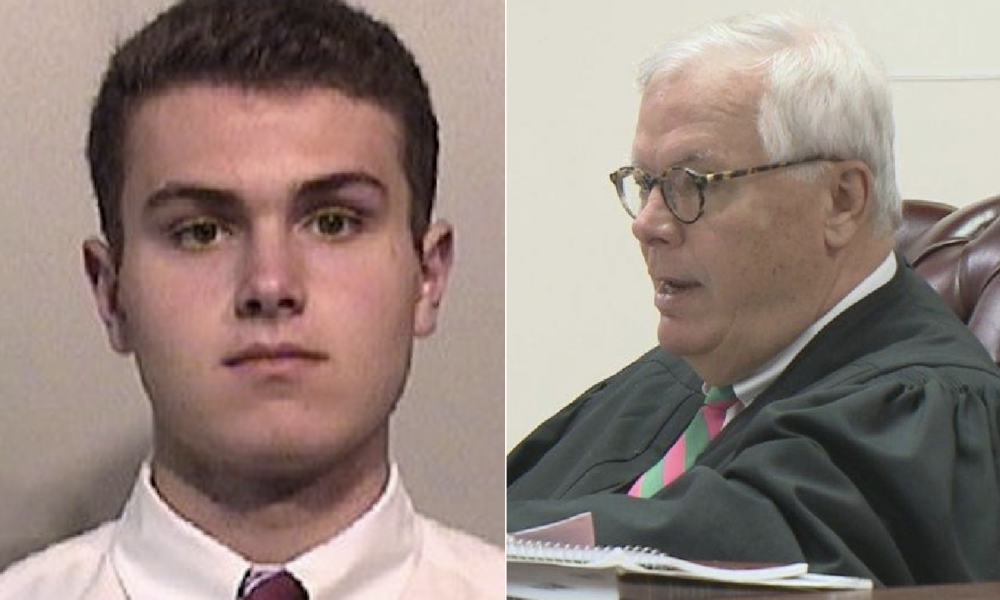
According to the court documents, the 20-year-old defendant, Christopher, pleaded guilty to ra-ing one young girl and se-ually abusing three others over the course of a year.
But, unfortunately,, thanks to the judge’s sympathy, he won’t even set foot inside of a prison cell for any of his crimes. The victims of the defendant are tormented by the fact that their se-ual abuser will not be jailed for his actions. The defendant was formally charged with first-degree ra-e, third-degree ra-e, and se-ual abuse involving multiple minors when he was only 17 years old.
The abuse occurred over the course of a year at his home. He later pleaded guilty to two counts of second-degree se* abuse, third-degree attempted abuse, and third-degree ra-e.
Per reports, Judge Murphy said in front of Belter and his victims that he agonized over whether or not to imprison the rapist. He then announced that Belter would receive no jail time and just eight years of probation for his crimes because jailing him wouldn’t be an appropriate sentence…Click Here To Continue Reading>> …Click Here To Continue Reading>>
Judge Murphy went on to say that he came to his decision based on the ra-ist’s age at the time of the crimes. The defendant was 16 or 17 when he ra-ed a teen girl and se-ually abused three others, whose ages ranged from 15 to 16 years. READ FULL STORY HERE>>>CLICK HERE TO CONTINUE READING>>>
“I agonized — I’m not ashamed to say that I actually prayed over what is the appropriate sentence in this case. because there was great pain. There was great harm — There were multiple crimes committed in the case,” Judge Murphy explained. “It seems to me that a sentence that involves incarceration or partial incarceration isn’t appropriate, so I am going to sentence you to probation.” Although the defendant is required to register as a se* offender, he received a sentence of two years interim probation which, if completed, will earn him Youthful Offender status. His probation restrictions include no contact with minors, living with his parents, employment or full-time student status, and no internet. “It’s going to be like a sword hanging over your head for the next eight years,” Judge Murphy remarked.
Christopher’s victims learned in court that he would receive no jail time. Understandably, they were stunned and disgusted with the judge’s decision.
One of the victim’s attorneys attributed the merciful sentence to Christopher’s race and economic status. “I am deeply, deeply disappointed. I expected a different outcome today,” declared Cohen, attorney. “Justice was not done today. He is privileged. He comes from money. He is white. He was sentenced as an adult, appropriately — for an adult to get away with these crimes is unjust.”
Related
METRO
Police thought disabled woman is a killer, they wheeled her to the judge and ‘she said these 5 chilling words’!
Published
11 hours agoon
May 9, 2025By
1oo9t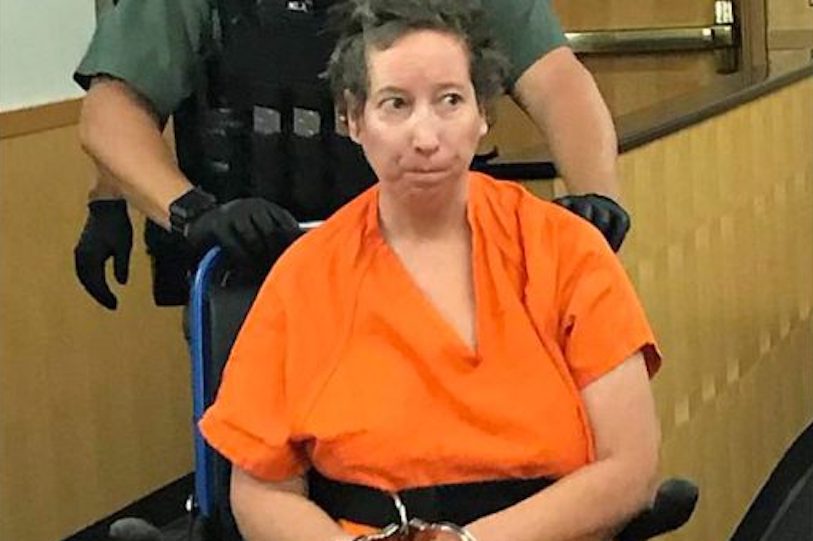
According to the court documents, the 50-year-old disabled woman, Asenka, was reportedly charged with murder for allegedly killing her mother.
The woman appeared in court and had an interesting request for the judge. Per reports, Asenka was charged with the murder of her 75-year-old mother at the home they shared and then dug a grave for her in the backyard.
She was brought into the court in a wheelchair, where she requested ‘the unexpexted’. Among the many people who commented about this incident, one person remarked: “Give her what she wants.”
Per reports, the 50-year-old woman reportedly said: “I want the death penalty. Lethal injection, please. The court does not want me alive, and neither do I.” She had reportedly told detectives that her mother, Carole, abused her physically over the years. When they fought the previous week, she punched her mother in the head and she passed away…Click Here To Continue Reading>> …Click Here To Continue Reading>>
READ FULL STORY HERE>>>CLICK HERE TO CONTINUE READING>>>
The woman then spent the rest of the day digging a grave, stopping when she became exhausted. She later went to a neighbor’s house to say her mother had died, with the neighbor calling 911 to request a welfare check. When police arrived, they found the victim’s body in the bedroom and a hole in the ground several feet deep.
Police reviewed Asenka’s phone to discover she had taken photos after her mother’s killing, including injuries to her hands and arms that she allegedly sustained during ther fight. Prosecutors noted that the victim had obtained a restraining order against Asenka last year and filed to renew it, but the order was dropped when they didn’t appear at the court hearing. Asenka’s attorney argued that his client was afraid of her mother because of the alleged abuse, but a friend of the victim that the older woman was very petite and said she had talked about her daughter’s mental health problems.
Among the many people who commented about the murder case, one person remarked: “Give her what she wants. I know they can do it and quickly because years ago a man who had killed and abused two boys asked to be hanged and he was within the year.” Another commenter added: “How sweet of her to tell the court what she wants. Her mother didn’t have a choice and I presume she didn’t want to be murdered. Let her go crazy and rot in a cell.” One commenter agreed, noting: “Too easy! Let her suffer for the rest of her life for what she did. I suspect the wheelchair is a prop!”
Related
Trending
-

 SPORTS9 months ago
SPORTS9 months agoSouth Korea Clinches Historic Tenth Consecutive Olympic Archery Title, Secures Paris 2024 Spot
-

 SPORTS10 months ago
SPORTS10 months agoLeBron James Makes Financial Sacrifice for Lakers, Misses Out on Free Agency Targets
-
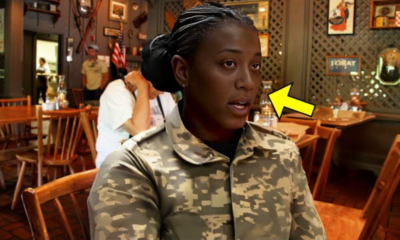
 METRO11 months ago
METRO11 months agoRestaurant Staff Denies Service To Black Soldier, Then She Returns The Next Day And Does THIS! –
-

 IN-THE-NEWS6 months ago
IN-THE-NEWS6 months agoҚазақстанда ең көп орташа айлық жалақыны кімдер алатыны анықталды
-

 SPORTS9 months ago
SPORTS9 months agoOlympic Drama: Alexander Zverev Shocked by Angelique Kerber Retirement Announcement
-
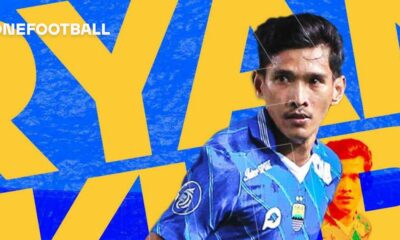
 SPORTS10 months ago
SPORTS10 months agoExcitement Grows as Persib Bandung’s Ryan Kurnia Prepares for AFC Champions League 2 Debut
-

 IN-THE-NEWS11 months ago
IN-THE-NEWS11 months agoGuest Shares Photo Of Food Items Shared At A Lagos Wedding
-
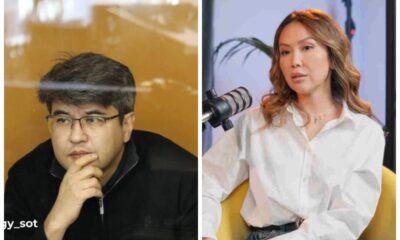
 IN-THE-NEWS6 months ago
IN-THE-NEWS6 months agoҚуандық Бишімбаевты ата-ана құқығынан айыру ісі: Апелляция қандай шешім қабылдады
